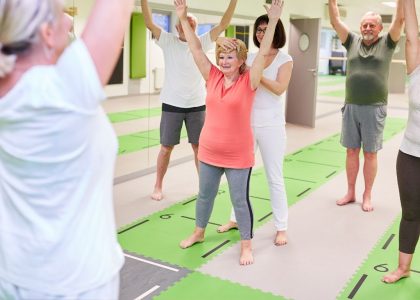Traditionally, caregiving for individuals affected by dementia aims only at medication management and daily living assistance; nevertheless, combining it with personalized exercise programs can greatly improve patients’ quality of life.
This article will show how personal training by specialists can help individuals diagnosed with Alzheimer’s Disease and dementia by demonstrating the advantages of such approaches and the best practices in the area of specialized care.
Understanding Alzheimer’s and Dementia Care
Alzheimer’s and Dementia care involves an all-encompassing plan that takes into account the physical and mental well-being of the patients. Alzheimer’s disease and dementia are neurodegenerative progressive diseases that affect millions of people globally, resulting in cognitive decline, loss of memory, and behavioral changes.
Caring for people with these circumstances means that there should be attention to their demands, such as their health and movement.
Benefits of Personal Training in Alzheimer’s and Dementia Care
1. Physical Health
On the one hand, regular fitness training strengthens the cardiovascular system, builds up muscles and improves flexibility, which prevents falls and contributes to the maintenance of independence.
2. Cognitive Function
Physical activity has been proven to increase cognition functioning and impede cognitive deterioration in patients with Alzheimer’s and dementia. It activates brain-derived neurotrophic factor (BDNF) production, which is a protein that fosters the sustenance of neurons.
3. Mood Enhancement
Exercising triggers the secretion of endorphins, neurochemicals that produce pleasant sensations and elevate mood. Exercise regularly to relieve the symptoms of depression and anxiety that frequently appear in Alzheimer’s and dementia patients.
4. Social Engagement
Face-to-face contact provided by personal training sessions offers conduits for social interactions and trusting relationships, feelings of isolation and loneliness, which typically accompany these conditions, can fade away.
Best Practices in Personal Training for Alzheimer’s and Dementia Patients
The physical fitness program developers must take into account the distinctive features, likes/dislikes and health care issues of persons with Alzheimer’s and dementia.
Here are some best practices to guide personal trainers in this specialized area of care: Here are some best practices to guide personal trainers in this specialized area of care:
1. Individualized Assessment
Do a complete investigation of the physical capabilities, cognitive competency, and medical history of the patient to design an adequate exercise program for their needs and limitations.
2. Gentle and Low-Impact Exercises
Select workout regimes that protect your body from the unnecessary burden of joints and muscles like walking, swimming, yoga, tai chi, and chair-based exercises. Refrain from undertaking a project that involves complex movements or movement variations quickly to prevent possible injury.
3. Clear Instructions and Repetition
Instruct your clients through simple, explicit guidelines for each exercise as many times as needed to ensure they grasp the directions. Give adequate visual cues and demonstrations of the movements to help the patient perform them correctly. Create your digital drawing using natural objects and online platforms.
4. Structured Routine
Develop a systematic exercise routine along with specific timings and sequencing to make it fun and more convenient for the patient.
5. Positive Reinforcement
Through the session be sure to praise and show your encouragement to the person to reinforce the fact that they are doing a good job. Praise small certainties and progress and keep that up to enthusiasm and participation.
6. Flexibility and Adaptability
Be prepared to adapt the exercise program to make it work as the condition changes and the patient’s specifics. Make every effort to maintain proper supervision of the participants’ response to the exercises and adjust, if needed.
7. Safety Precautions
Establish safety first by guaranteeing adequate supervision, maintaining assistance from devices and creating an exercise area free of hazards.
Conclusion
Incorporating personalized exercise programs into Alzheimer’s and dementia care can significantly improve the physical health, cognitive function, and overall well-being of patients. By focusing on gentle, low-impact exercises tailored to the individual’s needs and preferences, personal trainers can play a vital role in supporting these individuals on their journey towards a healthier and more fulfilling life. With careful planning, patience, and compassion, personal training can become an integral component of specialized care for individuals living with Alzheimer’s and dementia.






